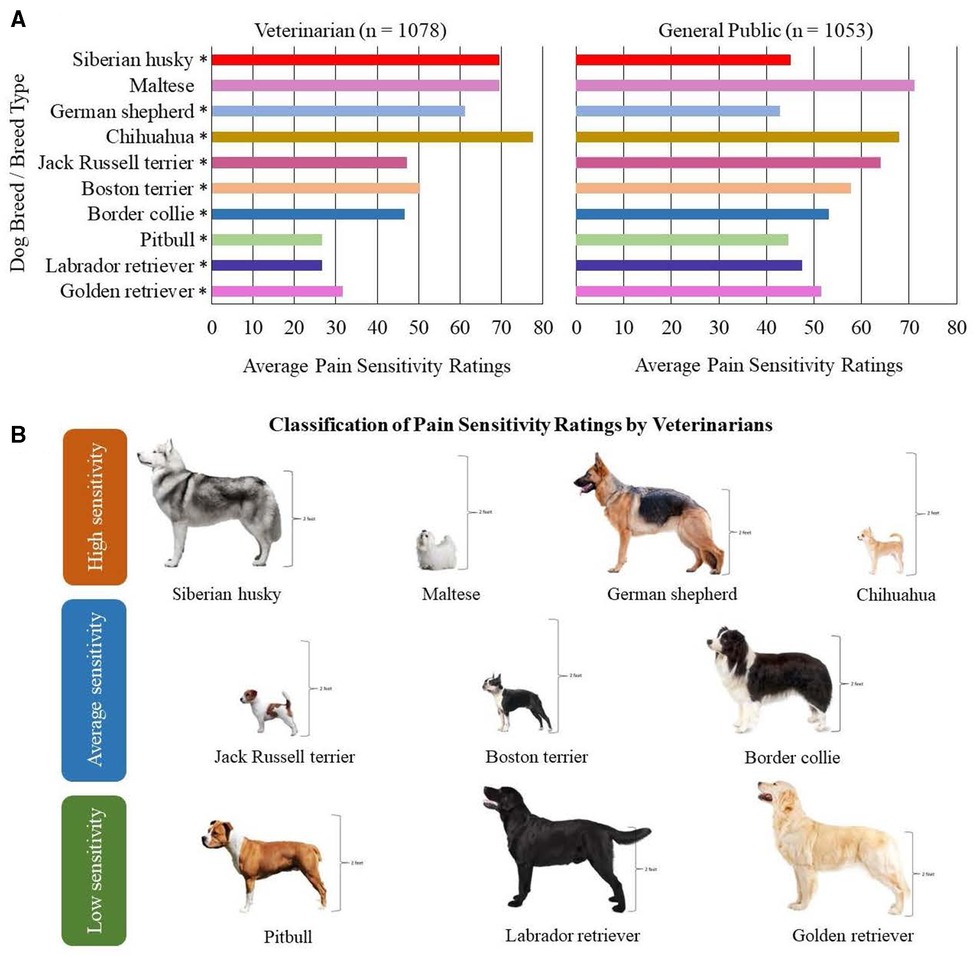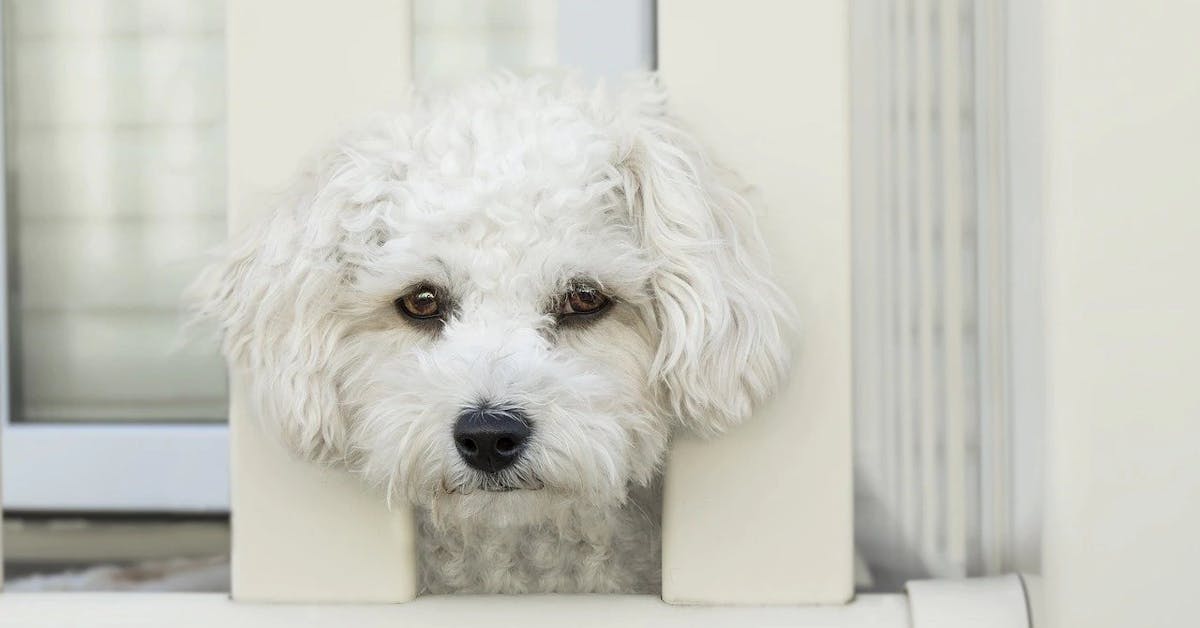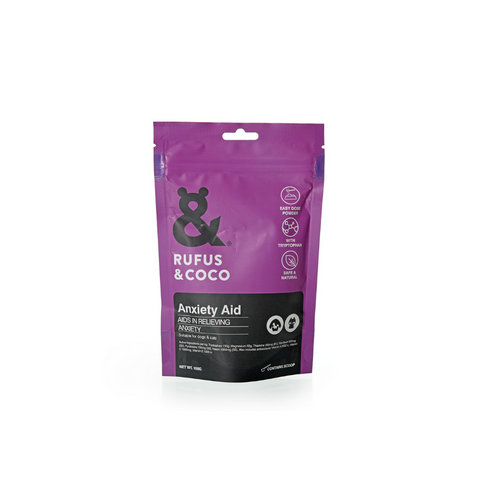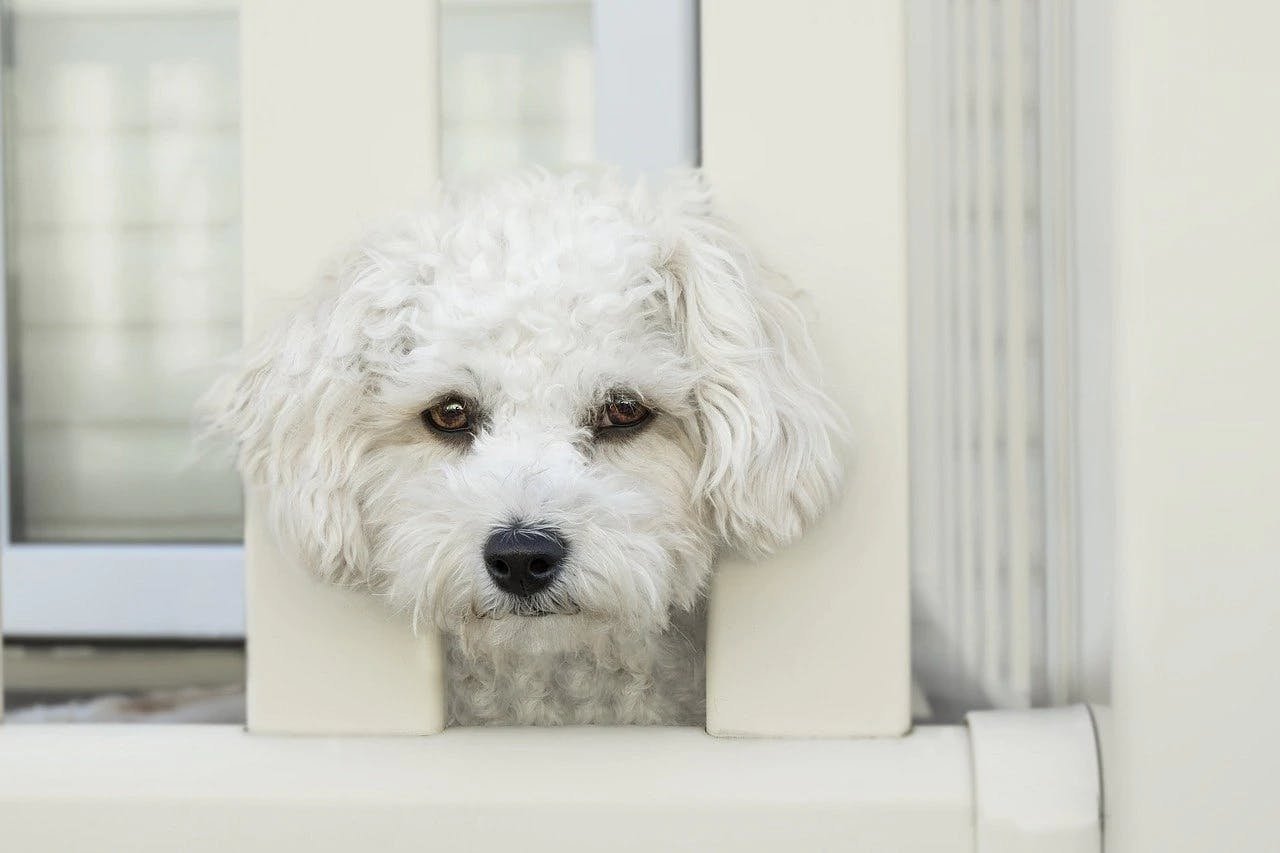If you have an anxious dog, it can be helpful to know which breeds are more prone to anxiety and how to support them. Some anxious dog breeds include Chihuahuas, Labrador Retrievers, and Cavalier King Charles Spaniels.
Ways to help them include seeking a positive reinforcement dog trainer, making the dog visible, and considering medication. Finding a shared interest and knowing your limits can also be beneficial. German Shepherds, Australian Shepherds, and Border Collies are some of the breeds that are more likely to have anxiety issues.
Pugs and Golden Retrievers are known to be good support dogs for anxiety. By understanding your dog’s breed and providing appropriate support, you can help alleviate their anxiety.

Credit: www.frontiersin.org
Top 10 Anxious Dog Breeds
Dealing with an anxious dog can be challenging, especially if you’re unsure about the specific needs of their breed. To help you better understand and address anxiety in dogs, we’ve compiled a list of the top 10 anxious dog breeds and shared some tips on how to help them.
Chihuahua
The Chihuahua is a small dog breed known for its big personality. However, their tiny size can make them prone to anxiety, especially when faced with unfamiliar situations or loud noises.
Labrador Retriever
Labrador Retrievers are typically friendly and easygoing. However, they can still experience anxiety, especially when left alone for long periods.
Maltese Dog
The Maltese dog breed is known for its affectionate nature. However, they can be prone to separation anxiety and may exhibit disruptive behaviors when left alone.
Cavalier King Charles Spaniel
Cavalier King Charles Spaniels are known for their loving and gentle temperament. However, they can be prone to separation anxiety and may become destructive if left alone for too long.
Border Collie
Border Collies are highly intelligent and energetic dogs. While they excel in various activities, they can also develop anxiety if not given enough mental and physical stimulation.
Basset Hound
Basset Hounds are known for their calm and gentle nature. However, they can still experience anxiety, especially when left alone for extended periods or when subjected to stressful situations.
Great Dane
The Great Dane is a gentle giant with a calm and friendly disposition. However, they can still suffer from anxiety, particularly when experiencing changes in their environment or routine.
Golden Retriever
Golden Retrievers are known for their friendly and patient nature. However, they can still experience anxiety, especially when not provided enough exercise and mental stimulation.
Greyhound
Although Greyhounds are often associated with racing, they are also known to be sensitive and prone to anxiety. These gentle dogs require a calm and consistent environment to thrive.
Havanese
Havanese dogs are affectionate and social, but they can develop separation anxiety if left alone for long periods. They thrive in the company of their human family members.
Yorkshire Terrier
Yorkshire Terriers are tiny dogs with big personalities. While they are often confident, they can still experience anxiety if not adequately socialized or if subjected to stressful situations.
Pug
Pugs are known for their playful and friendly nature. However, they can still experience anxiety, especially when left alone for extended periods or when faced with changes in their environment.
Chow Chow
Chow Chows are independent and strong-willed dogs. While they are generally loyal and protective, they can still develop anxiety if not given proper socialization and training.
Shar Pei
Shar Peis are known for their wrinkled skin and calm demeanor. However, they can still be prone to anxiety, particularly when left alone or when faced with new situations.
Lhasa Apso
Lhasa Apsos are small and independent dogs. While they can be loving and loyal, they can also be prone to separation anxiety if not properly trained and socialized.
Jack Russell Terrier
Jack Russell Terriers are energetic and intelligent dogs. While they make great companions, they can also develop anxiety if not given enough mental and physical stimulation.
Bulldog
Bulldogs are known for their friendly and laid-back nature. However, they can still experience anxiety, especially when subjected to changes in their routine or when left alone for long periods.
Italian Greyhound
Italian Greyhounds are known for their slender build and affectionate nature. However, they can still develop anxiety, especially when faced with loud noises or changes in their environment.
- Seek out a positive reinforcement dog trainer.
- Make the dog visible.
- Muzzle the dog up.
- Consider changing your vet.
- Learn your dog’s body language.
- Consider medication.
- Find a shared interest.
- Know your limits.
If you notice that your dog is showing signs of anxiety, it’s important to consult with a veterinarian or a professional dog trainer who can provide guidance and support tailored to your dog’s specific needs.
Anxiety can affect dogs of various breeds, and it’s important for dog owners to recognize the signs and seek appropriate assistance. By understanding the specific needs of anxious dog breeds and implementing strategies to help them, you can create a more comfortable and secure environment for your furry friend.
How To Help An Anxious Dog
Anxiety in dogs can be a challenging issue to deal with, and it requires a compassionate and understanding approach. If you have an anxious dog, there are several strategies you can employ to help them feel more calm and secure. Here are some effective ways to support your anxious pup:
1. Seek Out A Positive Reinforcement Dog Trainer
If your dog is experiencing anxiety, a positive reinforcement dog trainer can be a valuable resource. These trainers focus on reward-based training methods, which can help build your dog’s confidence and reduce their anxiety. Look for trainers who specialize in behavioral issues and have experience working with anxious dogs.
2. Make The Dog Visible
If your dog is prone to anxiety in social situations, it may be helpful to make them more visible when you’re out and about. Using a brightly colored leash or harness can help signal to others that your dog may need some extra space. This can reduce the likelihood of interactions that might trigger your dog’s anxiety.
3. Muzzle The Dog Up
In some situations, using a muzzle can help reduce your dog’s anxiety and increase their comfort level. Muzzles can be useful if your dog becomes anxious or reactive when meeting new people or other animals. It’s important to introduce the muzzle gradually and pair it with positive experiences, so your dog associates it with safety rather than punishment.
4. Consider Changing Your Vet
If your dog’s anxiety is triggered by visits to the veterinarian, it might be worth considering finding a vet who specializes in working with anxious animals. These vets often have experience in creating a calm and comfortable environment for anxiety-prone dogs, helping to minimize stress during medical procedures.
5. Learn Your Dog’s Body Language
Understanding your dog’s body language can help you recognize when they are feeling anxious. Signs of anxiety in dogs can include shaking, excessive panting, pacing, or seeking your attention. By learning to recognize these signals, you can intervene early and provide the support your dog needs to feel more secure.
6. Consider Medication
In some cases, medication may be necessary to manage your dog’s anxiety. Consult with your veterinarian to discuss the potential benefits and risks of medication options. Medication can help regulate your dog’s anxiety levels and make it easier for them to engage in training and behavior modification.
7. Find A Shared Interest
Engaging your dog in activities that they enjoy can help distract from their anxiety. Whether it’s going for a hike, playing fetch, or learning new tricks, finding a shared interest can provide mental and physical stimulation that can help reduce anxiety levels.
8. Know Your Limits
While it’s important to provide support for your anxious dog, it’s also crucial to know your own limits. Taking care of a dog with anxiety can be emotionally draining, and it’s okay to reach out for additional support if needed. Consider joining support groups or seeking guidance from professionals who specialize in anxiety-related issues.
The Most Anxiety-prone Dog Breeds
Dogs can experience anxiety, just like humans. While any breed can develop anxiety, certain dog breeds are more prone to this condition. It’s important for dog owners to understand which breeds are more susceptible to anxiety so they can provide the appropriate care and support. In this section, we will explore the top ten anxiety-prone dog breeds and provide tips on how to help them cope.
German Shepherd
German Shepherds are known for their loyalty and intelligence, but they can also be prone to anxiety. This breed craves companionship and can become anxious when left alone for long periods. Separation anxiety is a common issue among German Shepherds.
Australian Shepherd
Australian Shepherds are highly energetic and intelligent dogs. Their active nature and need for mental stimulation can make them prone to anxiety if they don’t receive enough physical exercise and mental enrichment. Providing them with regular physical activity and mental challenges can help alleviate their anxiety.
Border Collie
Border Collies are renowned for their work ethic and herding instincts. However, their high energy levels and intense focus can contribute to anxiety if they don’t receive enough mental and physical stimulation. Regular exercise, training sessions, and engaging activities can help them manage their anxiety effectively.
Jack Russell Terrier
Jack Russell Terriers are small dogs with big personalities. Their high energy levels and intelligence make them prone to anxiety if not properly stimulated. Regular exercise, interactive toys, and positive reinforcement training can help channel their energy and reduce their anxiety levels.
Cavalier King Charles Spaniel
Cavalier King Charles Spaniels are known for their gentle nature and affectionate personality. However, they can be prone to separation anxiety and fear-based anxiety. Creating a calm and predictable environment, as well as gradual desensitization to triggers, can help alleviate their anxiety.
Bichon Frise
Bichon Frises are small, cheerful dogs that are prone to anxiety and hypersensitivity. These dogs can become anxious in unfamiliar situations or when left alone. Establishing a routine, providing adequate mental stimulation, and using positive reinforcement techniques can help minimize their anxiety.
Toy Poodle
Toy Poodles are intelligent and highly trainable dogs. However, their small size and delicate nature can make them prone to anxiety. They may struggle with separation anxiety and fear of unfamiliar people or environments. Creating a secure and structured routine, along with socialization and gradually exposing them to new experiences, can help reduce their anxiety levels.
Labrador Retriever
Labrador Retrievers are known for their friendly and outgoing nature. However, they can also be prone to anxiety, especially when faced with separation from their owners or changes in their environment. Providing regular exercise, mental stimulation, and maintaining consistent routines can help ease their anxiety.
Cocker Spaniel
Cocker Spaniels are gentle and affectionate dogs that can be prone to separation anxiety. They thrive on human companionship and can become anxious when alone for extended periods. Implementing techniques such as crate training, gradually increasing alone time, and offering interactive toys can help alleviate their anxiety.
German Shorthaired Pointer
German Shorthaired Pointers are energetic and intelligent hunting dogs. Without adequate exercise and mental stimulation, they can become anxious and display destructive behaviors. Engaging them in regular physical activity, mental challenges, and positive reinforcement training can help keep their anxiety in check.

Credit: furbo.com
Choosing The Right Breed For Anxiety Support
Anxiety can affect dogs just as it affects humans. If you’re considering getting a dog as an emotional support animal or to help with anxiety, choosing the right breed is crucial. Not all dog breeds are well-suited for anxiety support, so it’s essential to find a breed that has natural traits and characteristics that align with your needs. Here, we’ll explore three dog breeds known for their calming and comforting nature: Pug, Golden Retriever.
Pug
Pugs are a popular choice for anxiety support due to their affectionate and gentle nature. These small dogs make excellent companions and are known for their ability to sense their owner’s emotions. Pugs thrive on human interaction and are highly attentive, making them a great choice for individuals seeking emotional support.
Here are some key factors to consider when choosing a Pug as an anxiety support dog:
- Size: Pugs are small-sized dogs, making them suitable for apartment living or homes with limited space.
- Temperament: Pugs are known for their friendly and sociable nature. They enjoy being around people and can quickly form strong bonds with their owners.
- Exercise Needs: Pugs have moderate exercise requirements, making them suitable for individuals who may not be able to engage in high-intensity activities.
Golden Retriever
Golden Retrievers are renowned for their friendly and outgoing temperament, making them excellent emotional support animals. They are known for their ability to connect deeply with their owners and provide unconditional love and comfort.
Consider the following factors when choosing a Golden Retriever as an anxiety support dog:
- Size: Golden Retrievers are medium to large-sized dogs, so they require enough space to roam and play.
- Temperament: These dogs have a gentle and patient nature, making them suitable for families or individuals who require constant emotional support.
- Exercise Needs: Golden Retrievers are active dogs that require regular exercise to keep them physically and mentally stimulated.
Remember, choosing the right breed is just the first step. It’s equally important to provide proper training, socialization, and a stable environment to ensure your dog’s overall well-being and ability to assist with anxiety. Always consult with a professional dog trainer or behaviorist if you require additional guidance.
Dog Breeds For Children With Anxiety
Discover the top 10 anxious dog breeds and how to help them cope with their anxiety. From Chihuahuas to Great Danes, learn the best strategies to reduce your dog’s anxiety and create a calm environment for them.
Golden Retrievers
Golden Retrievers are widely known for their friendly and gentle nature, making them an ideal choice for children with anxiety. Their calm temperament and deep emotional bond with their owners make them excellent companions for kids who may need extra comfort and support. This breed is highly intelligent and easily trainable, allowing them to adapt to various situations and environments. Golden Retrievers are also highly sociable and get along well with both humans and other animals, making them a great addition to any family.How To Help Golden Retrievers With Anxiety
If you have a Golden Retriever that shows signs of anxiety, here are some helpful tips to alleviate their stress and provide a safe environment for them to thrive: 1. Create a Routine: Establishing a consistent daily routine can help your Golden Retriever feel secure and reduce anxiety levels. 2. Provide Mental Stimulation: Engage your dog in interactive toys, puzzles, and games to keep their minds occupied and prevent boredom. 3. Regular Exercise: Golden Retrievers are active dogs that require daily exercise to burn off excess energy and reduce anxiety. Incorporate regular walks, playtime, and mental stimulation activities into their routine. 4. Positive Reinforcement Training: Using positive reinforcement techniques, such as rewards and treats, can help build your Golden Retriever’s confidence and address anxiety triggers. 5. Create a Safe Space: Designate a quiet and comfortable area in your home where your dog can retreat to when they feel overwhelmed or anxious. Provide cozy bedding and toys in this space. 6. Socialization: Expose your Golden Retriever to different environments, people, and stimuli from a young age to help them feel more confident and less anxious in unfamiliar situations. 7. Consult a Professional: If your Golden Retriever’s anxiety persists or becomes severe, it is advisable to consult a professional dog trainer or a veterinarian specialized in canine behavior for additional guidance and support. Remember that every dog is unique, and their anxiety may vary in intensity. Patience, understanding, and love are key when helping your Golden Retriever overcome anxiety and enjoy a happier, more fulfilling life.
Credit: rufusandcoco.com.au
Frequently Asked Questions On 10 Anxious Dog Breeds And How To Help Them
How Can You Help A Dog With Anxiety?
To help a dog with anxiety: 1. Seek a positive reinforcement dog trainer. 2. Make the dog visible. 3. Muzzle the dog up. 4. Consider changing your vet. 5. Learn your dog’s body language. 6. Consider medication. 7. Find a shared interest.
8. Know your limits.
Which Dog Breed Has The Most Anxiety?
The dog breeds most prone to anxiety are German Shepherds, Australian Shepherds, Border Collies, Jack Russell Terriers, Cavalier King Charles Spaniels, Bichon Frises, Toy Poodles, Labrador Retrievers, Cocker Spaniels, and German Shorthaired Pointers.
What Is The Best Support Dog For Anxiety?
The best support dog for anxiety can vary depending on individual needs. However, dog breeds such as Chihuahua, Labrador Retriever, Great Dane, Golden Retriever, and Pug are often recommended. Seeking help from a positive reinforcement dog trainer, understanding your dog’s body language, and considering medication are also helpful in managing anxiety in dogs.
What Breed Of Dog Is Best For A Child With Anxiety?
The best breed of dog for a child with anxiety is the Golden Retriever. They are friendly, playful, and good with children, making them great companions. Golden Retrievers are also comfortable with strangers, both human and dog, which can help ease social anxiety.
Conclusion
Understanding the anxious tendencies of certain dog breeds is crucial for providing them with the help they need. By seeking out a positive reinforcement dog trainer, making them visible, and learning their body language, we can help reduce their anxiety.
Considering medication, changing vets, and finding a shared interest are also effective strategies. Remember, knowing your limits and seeking professional guidance will ensure the well-being of your anxious dog.

